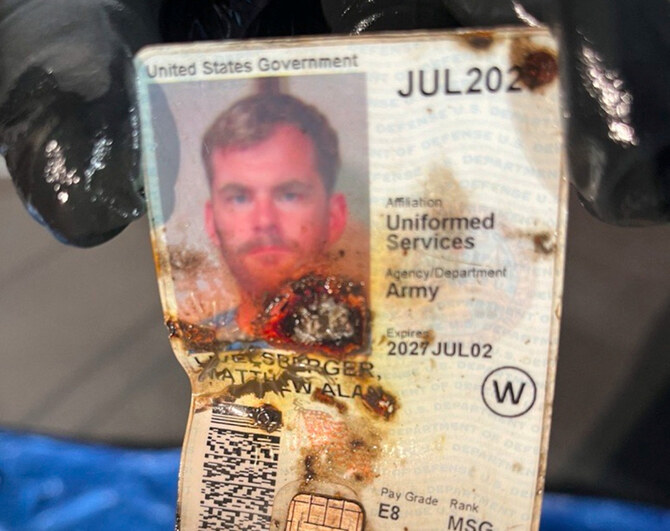PARIS: French President Emmanuel Macron said Sunday he hoped his bitterly contested pensions reform plan, forced through parliament without a vote, could complete “its democratic journey,” a day before crucial votes in parliament.
The controversial legislation, which has led to months of protests in parliament and on the streets, will be adopted in parliament Monday unless either of two motions of no-confidence in the government passes.
“After months of political and social consultation and more than 170 hours of debate which resulted in the vote of a compromise text between the (two parliamentary chambers)...,” Macron expressed his wish “that the text on pensions can go to the end of its democratic journey with respect for all.”
His words came in a statement issued by the president’s office to AFP.
If passed, Macron’s reform would raise the legal retirement age from 62 to 64 as well as increasing the number of years people must pay into the system to receive a full pension.
The government’s decision last week to resort to Article 49.3 of the constitution to force the bill through parliament without a vote has prompted anger in the streets after weeks of mostly peaceful protests.
Two leading members of the right-wing Republicans party, whose leader has said they will not support no-confidence motions, reported threats and intimidation against them Sunday.
Monday’s two no-confidence motions have been filed by a small group of centrist MPs and the far-right National Rally.
If the no-confidence motions fall, as most observers expect will happen, left-wing deputies have said they will appeal to the Constitutional Council, to challenge the way the government forced through the reform.
“There will be no majority to bring the government down, but it will be a moment of truth,” Finance Minister Bruno Le Maire said of the two efforts to unseat the cabinet planned for Monday afternoon.
The government’s decision last week to resort to Article 49.3 of the constitution — which allows for the forcing of a bill through parliament without a vote — led to a fourth consecutive day of protests on Sunday.
“I’m overwhelmed with a feeling of immense anger,” Isabelle Desprez, a 54-year-old maths teacher demonstrating in the northern city of Lille, told AFP.
Laurent Berger, head of the moderate CFDT union, told Liberation newspaper: “We went from the feeling of being despised to a feeling of anger, in particular because we deprived employees of the result of their protests.”
“The growing resentment and anger must serve the demonstrations in a peaceful framework and not be politically exploited,” he added.
A ninth day of strikes and protests is planned for Thursday.
Police on Saturday closed Paris’ Place de la Concorde opposite parliament for demonstrations following two successive nights of clashes.
Some 122 people were arrested as some set rubbish bins on fire, destroyed bus stops and erected improvised barricades around a 4,000-strong demonstration in the capital.
On Sunday, police arrested another 17 people as protesters invaded the Les Halles shopping complex in central Paris.
Away from the streets of major cities, the CGT said Saturday that workers would shut down France’s largest oil refinery in Normandy, warning that two more could follow on Monday.
So far, strikers have only prevented fuel deliveries from leaving refineries but not completely halted operations.
Industrial action has also halted rubbish collection in much of Paris, with thousands of tons of waste now on the streets, even as the government forces some binmen back to work using requisition powers.
The government says the pensions reforms are needed to avoid crippling deficits in the coming decades linked to France’s aging population.
“Those among us who can will gradually need to work more to finance our social model, which is one of the most generous in the world,” Le Maire said.
But opponents of the reform say the law places an unfair burden on low earners, women and people doing physically wearing jobs, and polls have consistently showed majorities opposed to the changes.
On Monday over half a million high school students will begin the first day of the 2023 Baccalaureat exams, against a backdrop of strike threats by supervisors.




























